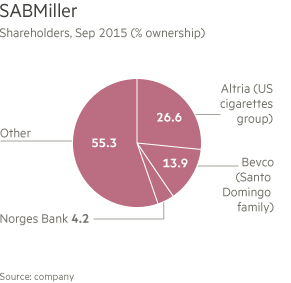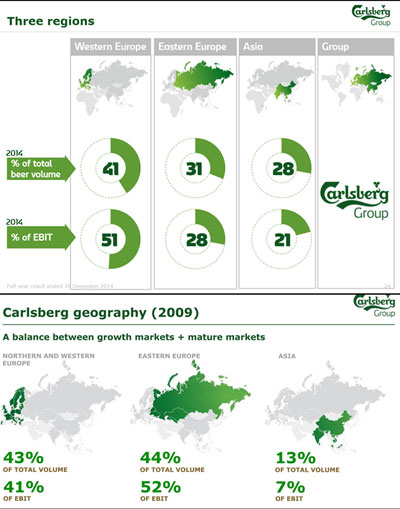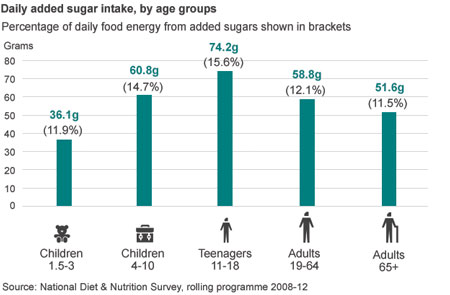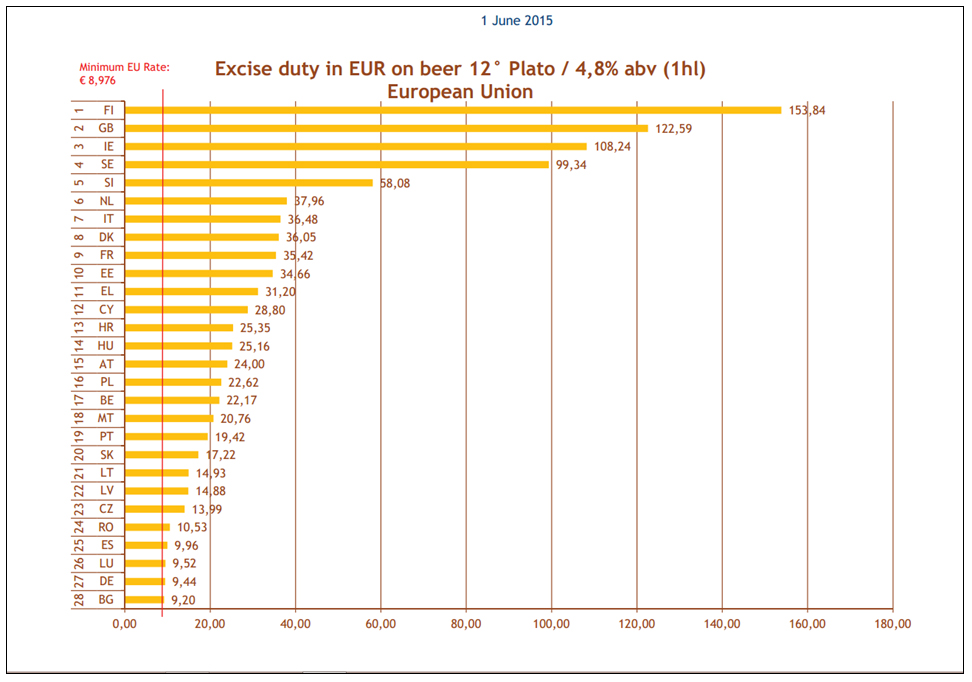Unless you shop for your beer at the discount supermarket Aldi, you would not know that behind Aldi’s big seller Karlsquell beer is the family-owned Belgian brewer Martens.
What? Gin not Scotch whisky? UK embassies were told to serve gin at official functions as the UK’s government makes a concerted push to double the level of gin exports, media reported on 28 August 2015.
Not exactly the premiere he must have hoped for. Carlsberg’s CEO Cees ’t Hart, the former head of the Dutch dairy company Royal FrieslandCampina who took over at Carlsberg in June, had to break the bad news on 19 August 2015 that the world’s number four brewer was expecting a slight fall in profit for the full year after reporting first half organic volume declines of -1 percent in Western Europe and a drop of -18 percent in Eastern Europe, which were not offset by volume sales in Asia (+5 percent).
AB-InBev must be glad that they have found a buyer for their Hannover brewery, which has long been surplus to their requirements in Germany. According to estimates, beer production at Gilde is only 150,000 hl although the plant has a capacity of over 1 million hl.
Hasn’t Coca-Cola’s corporate strategy in recent years resembled a zig-zag course? Six years ago, The Coca-Cola Company touted it wanted to re-engage with bottling, thus pulling the two sides of its value chain – marketing and bottling – closer together. All this was to help Coke and its bottlers to double their combined revenues to USD 200 billion by 2020. Now Coke wants to pull out from botting again and assign the more arduous – and capital intensive – task to independent bottlers.
Governments have every reason to be concerned about the damaging impact of sugar on health – from people’s rotting teeth to type 2 diabetes and bulging waistlines. But the jury is still out on the question if a sugar tax is the appropriate measure to make people change their consumption habits.
A surge during the past two years has seen microbreweries opening up at rate of three every week. Figures from the British Beer and Pub Association show there are more than 1,400 breweries in the country.
Isn’t it funny that the Belgian government should announce a beer excise hike at the end of July 2015 when everybody was on holiday? The timing was impeccable. No media outcry ensued. Which must have been the whole point of the summer exercise.
They should be pleased. Heineken’s global volume was up 2 percent in the January to June 2015 period, compared to a 1.6 percent decline for AB-InBev and a 1 percent drop for SABMiller.
FlavorActiV Ltd, a UK-based sensory training company for the beverage industry, is the Official Quality Partner to London Beer City and will be promoting good sensory practices, beverage quality and professional tasting skills during the week-long festival of great British beer which takes place from 7-16 August 2015. For nearly 20 years FlavorActiV has been supporting the brewing industry through taste panel training, online proficiency and GMP flavour kits.




